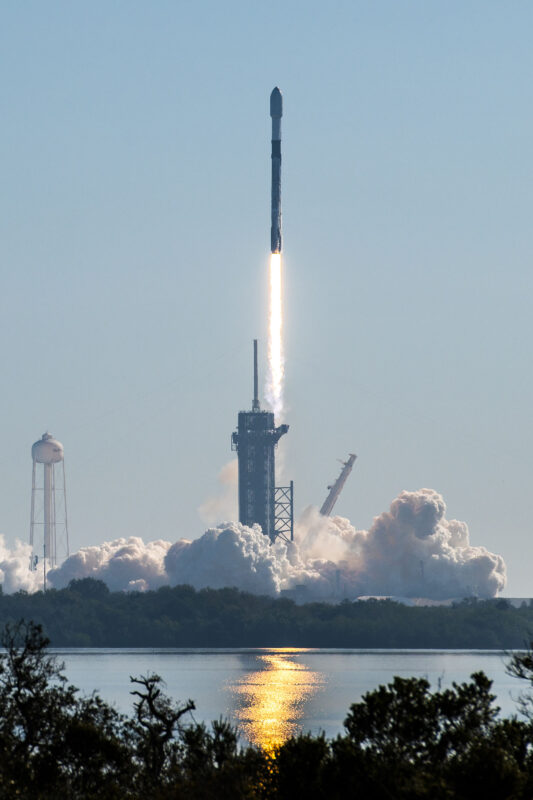SpaceX Launches More Starlink Satellites as Service Operates in Ukraine

SpaceX Starlink launch on March 3, 2022. Photo: SpaceX
SpaceX launched a batch of Starlink satellites on Thursday morning, as the constellation is getting global attention for providing internet connectivity in the Ukraine.
A Falcon 9 rocket took off from Launch Complex 39A at Cape Canaveral Space Force Station in Florida on Thursday morning at 9:25 a.m ET, carrying 47 Starlink satellites. SpaceX confirmed at 10:45 a.m. that all 47 satellites were successfully deployed. The first stage booster, which was in use for the 11th time, was successfully recovered on a droneship.
This was SpaceX’s sixth dedicated Starlink mission so far in 2022, following a launch of 50 satellites on Feb. 25.
The constellation, which provides internet service via satellites in Low-Earth Orbit (LEO), is in the public eye this week for providing service in the Ukraine as the country is under assault from Russia.
Vice Prime Minister of Ukraine Mykhailo Fedorov appealed directly to SpaceX Founder Elon Musk on Twitter, and SpaceX responded by sending Starlink terminals. Musk and Fedorov later confirmed that the service is operating, although it is unclear how many Starlink terminals are in use.
“A few days ago, the Ukrainian government confirmed that the Starlink kits had arrived, and we’re told that they’re already in use,” Siva Bharadvaj, SpaceX operations engineer, said during Thursday’s launch broadcast. “We couldn’t be more proud of all the teams that jumped in to make this effort happen, along with the many individuals locally who supported.”
Musk tweeted a warning about using the service on Thursday, bringing up the possibility that users in Ukraine could be targeted.
“Starlink is the only non-Russian communications system still working in some parts of Ukraine, so probability of being targeted is high. Please use with caution. Turn on Starlink only when needed and place antenna away as far away from people as possible. Place light camouflage over antenna to avoid visual detection,” he said.
Dmitry Rogozin, director general of Russian space agency Roscosmos, slammed the Starlink service and said it’s a sign that Russia should never trust the West, he told a Russian news outlet, as translated on Twitter by Katya Pavlushchenko.